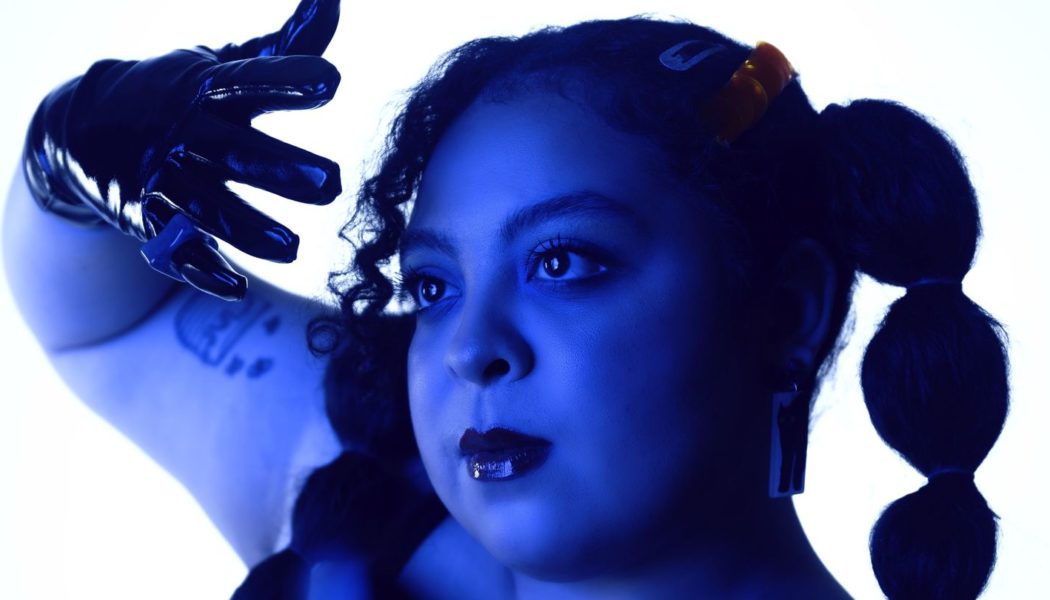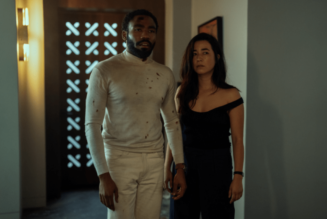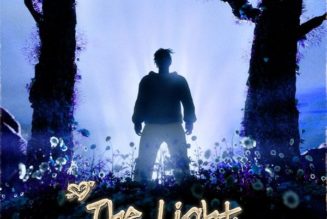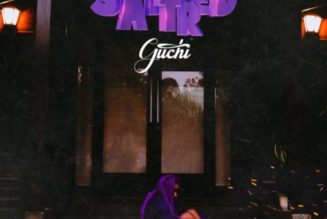
By Max Freedman
At the start of the pandemic, Kaina Castillo felt just like the rest of us: isolated, uninspired, a bit down. For the 26-year-old Chicago-based musician, who records as Kaina (styled in all caps), that meant going through 2020 without working on music — not even with the tailwind of her breakout 2019 debut album Next to the Sun propelling her forward. “It was really difficult to ask myself to create anything,” she tells MTV News. “We’ve never experienced a time like this, and I think it’s completely fair to say that all you want to do is just lay in bed and be numb.”
In early 2021, Castillo reckoned with how unmoored she felt from her music in 2020 and decided to do something about it. “I was like, ‘I haven’t written a song, and I’m losing that muscle,’” she says. She gave herself a writing challenge and a schedule. Monday through Friday: Journal. Saturday: Start constructing a song. Sunday: Begin producing it.
The result is It Was a Home, Castillo’s splendid sophomore album. Its 12 songs — including a cover of Stevie Wonder’s “Come Back as a Flower” and a rare Sleater-Kinney guest feature — distill the warm, intimate psychedelia and Latin-inflected pop of Next to the Sun into an even softer, more smoothly flowing palette. Where she often used righteous language and themes of home on Next to the Sun to reckon with her place in American society as a first-generation Latinx immigrant, It Was a Home finds her considering the people who care about her and reaching out to them. The album’s inviting, vibrant yet placid sound is a Trojan horse for lyrics about the challenges of connecting with others and being vulnerable during a period of extended isolation. Though her language is entirely conversational, she sounds like she’s assembling ideas she’s long struggled to express. “I was able to write songs that are simple but touch on really complex subjects,” she says.
That simplicity speaks volumes to how Castillo upheld community and empathy in what began as a solitary practice: “I wanted everything that I made for [the album] to be something everyone enjoys at their own pace and feels no pressure about.” Other artists might create with mostly their own catharsis in mind, but Castillo considered what might best reach and comfort her listeners, whom she meets on their own level rather than asking them to come up to hers. “It’s too easy / Feeling left behind / Without a reason / It’s made up in my mind,” she sings over breezy acoustic arpeggios on “In My Mind,” as though to say, Hey, that potentially baseless anxiety you’re experiencing — same here, so let’s address it together. When she dreams of a home where big groups of guests come and go on the string-laden, maraca-guided single “Casita,” you get the sense she’s inviting everyone to visit. She’s eager to reach anyone who sees themselves in her and vice versa, and as she forges new bonds, she’s always genuine, and she never overreaches.
“Casita” is among the album’s most obvious (and successful) attempts to, as Castillo puts it, “build a little world for my audience to come back to me, for both of us to come back to each other.” The absence of live shows for well over a year made her feel like she had lost touch with a bunch of friends. One of Castillo’s overarching questions that guided It Was a Home speaks better to this feeling than any attempts to directly encapsulate it: “How can you send a virtual hug?”
On “Sweetness,” a tender ballad dripping with strings and the low-pitched, simple refrain of “I could give a little sweetness / I could use a little sweetness,” Castillo reveals she also needs the virtual hug she’s looking to give. “Opening up is hard / I’ll admit it / And I could use a hug / A moment to rest,” she sings. Being forthright can be intimidating, but it’s so much easier when you feel connected to a robust support system of great people. “I tend to be the hashtag strong friend,” she says, “and I feel so uncomfortable asking for help. That’s what I’m talking about with this whole project. It feels silly to me sometimes to be like, ‘I need a hug,’ but it’s not silly. It’s just like, that’s what I need right now, you know?”
For a while, Castillo literally couldn’t get the human embrace she was seeking — she started creating It Was a Home before vaccines were widely available. To take her first steps toward reconnecting with the people in her life, she asked her bandmates to send her their musical ideas, which she then rearranged and fleshed out before asking for input. She wanted to create music that she felt her whole band could own, both figuratively and financially, during a time of separation. She also thought her full-band approach to songcraft “would be a perfect opportunity for [my bandmates] to flex the part of their brain” that hadn’t been as active given the lack of concerts.
That process is how guitarist Brian Sanborn and drummer Ryan the Person got co-production credits on the album. Previously, Castillo’s primary co-producer was her best friend, the atmospheric jazz-rap artist Sen Morimoto, and though the two did co-produce and co-write It Was a Home, the LP marks the duo’s first time opening their circle. The Latin-inflected track “Good Feeling” is a highlight of this expanded production crew: Sanborn co-produced it, and Morimoto’s guest verse, delivered in his eternally chill voice, sounds like flowers blooming from the track’s verdant, psychedelic melodies and arrangement. And on “Sweetness,” Ryan the Person helps Castillo and Morimoto transform a slow-paced ballad into an enveloping sensory experience, with cymbals and toms hitting right when the other elements briefly recede for maximum effect.
In reaching out to others — her bandmates, her listeners — through her music, Castillo says she’s found more confidence. “Even though these songs don’t feel like as much of a celebration” as her past work, she says, “They have more clarity about who I am … because I have the support of my bandmates and my community.” Not that she’s ever lacked a great set of people in her life, but as she tells it, “I’m someone who likes to give back, reflect back into the world, and be there for other people all the time.” To center her own needs instead and explore them in her lyrics was a bold, unprecedented shift for her. That’s part of why she doesn’t entirely let go of Next to the Sun’s dominant theme: home.
The other reason this theme persists is more revealing. The way Castillo explains it, home and community are inseparable, even in moments of physical distance. Growing up, her home “was always full of people dancing and making food and…just being [in] community.” Looking back on how her parents transformed their house into a communal space for all their loved ones, she sees herself doing the same thing with her music, especially on It Was a Home. “That’s exactly what I do with my life 20 years later,” she says, “in a different way.”











Tagged: music